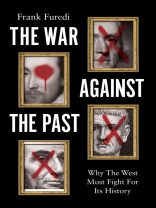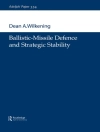A war is being waged against the Past. Whether it’s toppling statues, decolonising the curriculum or erasing terms from our vocabulary, a cultural crusade is underway designed to render the past toxic. It is condemned as enemy territory and has become the target of venomous hate. What is at stake in provoking such a strong sense of societal shame towards Western history?
In this book, Frank Furedi mounts a fierce defence of the past and calls for a fight back against the delegitimization of its ideals and accomplishments. Casting the past as a story of shame has become a taken-for granted outlook permeating the educational and cultural life of western society from the top down. Its advocates may see it as a cultural imperative, but a society that loses touch with its past will face a permanent crisis of identity. Squandering the wisdom provided by our historical inheritance means betraying humanity’s positive achievements. Challenging this great betrayal, Furedi argues, is one of the most important battles of our time.
Inhaltsverzeichnis
Acknowledgments
Preface
Introduction
Chapter 1 What Is the Past?
Chapter 2 The War’s Long Gestation
Chapter 3 The Ideology of Year Zero
Chapter 4 The Present Eternalised
Chapter 5 Identity and the Past
Chapter 6 The Struggle to Control Language
Chapter 7 Disinheriting The Young from Their Past
Conclusion
Notes
Bibliography
Index
Über den Autor
Dr. Frank Furedi, author and social commentator is Emeritus Professor of Sociology at the University of Kent. Author of more than 26 books, Furedi’s studies have been devoted to an exploration of the cultural developments in western societies. In recent years he has published several studies on the impact of the Culture Wars on family life, socialisation, education and public life. His most recent book, 100 Years of Identity Crisis, argues that it disrupts the socialisation of young people and encourages the estrangement of generations from one another.
His research has been oriented towards the way that risk and uncertainty is managed by contemporary culture. His two influential books, The Culture of Fear and Paranoid Parenting, investigated the interaction between risk consciousness and perceptions of fear, trust relations and social capital in contemporary society. His book How Fear Works: The Culture of Fear in the 21st Century (2018) explored the distinct features of contemporary fear culture.












